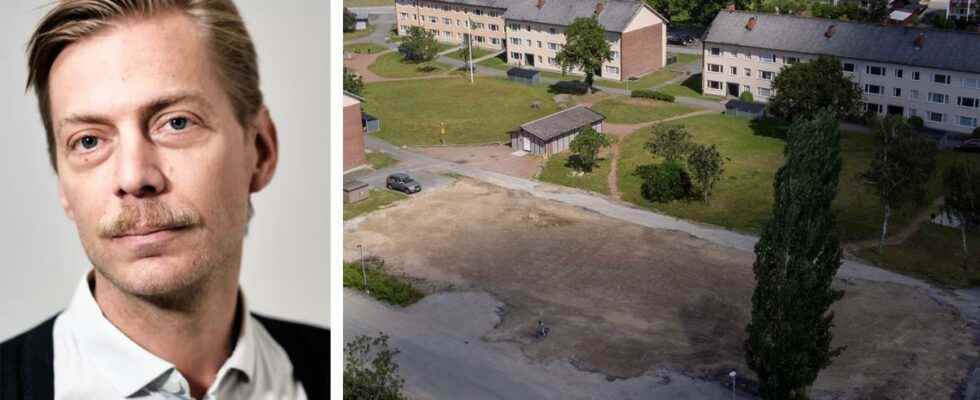Published: Less than 20 min ago
Housing demolitions have become more common among the country’s municipalities.
According to housing researcher Martin Grander, Sweden may be facing a new wave of demolitions.
– The risk is that you build away cheap housing for people, he says.
Martin Grander, housing researcher at Malmö University, believes that the demolition of the residential area Ringen in Hanaskog is exceptional in Swedish housing policy. It is not unusual for an entire residential area with over a hundred apartments to be demolished.
– It has mostly been that parts of an area have been demolished, he says.
But demolitions have become more common among municipalities in recent years. In Hultsfred, hundreds of tenements have been demolished to avoid so-called social dumping after the Migration Agency terminated the contract with the municipal housing company. Apartment buildings are also being demolished in Säffle and Hagfors.
Segregation tears may increase
The Housing Authority has recently added a question about demolitions in its annual survey to the municipalities because it sees an increasing trend.
According to Martin Grander, Sweden may face a new wave of demolitions.
– Yes, that could very well be the case. Many municipalities have caught up with housing construction, which may lead to more of them starting to demolish the older, cheaper houses, he says.
He also believes that it will become more common for politicians to use segregation as an argument for the demolitions. An idea that has already been implemented in Denmark.
In Landskrona, houses in a vulnerable area have also been demolished and replaced with terraced houses. In Kristianstad, a leading L politician has proposed demolitions in the vulnerable area of Gamlegården.
– It is clear that it is controversial. But above all because we need cheap housing to live in.
“Way to choose your population”
According to him, the housing shortage in the country today is not due to a lack of physical housing.
– There is a lack of affordable housing that people can afford. When you demolish these older, cheaper homes, they can never be replaced. Newly built ones are always more expensive, he says.
Reducing or simply not having any cheap public housing in a municipality can become a way of choosing which people are allowed to settle in one’s municipality, the researcher states.
– It will be like a regional Svarte Petter game where you compete not to have a resource-poor population. If all municipalities act the same, there will be very few who take responsibility for housing for all people.
14 municipalities lack public utility
Municipalities have a statutory responsibility for housing provision for their population. But in what way it is possible to demand responsibility from them is a little more unclear.
14 municipalities in Sweden do not have any public utility today. Something that leads to very strict control of which people can live there, according to Martin Grander.
– The Housing Supply Act does not have an expressed responsibility for all population groups, it is the one that makes it possible to do so. Both the state and municipalities must do more to ensure that there is housing for all groups.
Martin Grander believes that there is an overconfidence in construction projects as a way to solve social vulnerability.
– You have big ambitions with these projects, but they often rest on shaky foundations. In fact, it is people’s living conditions that are the basic problem.
